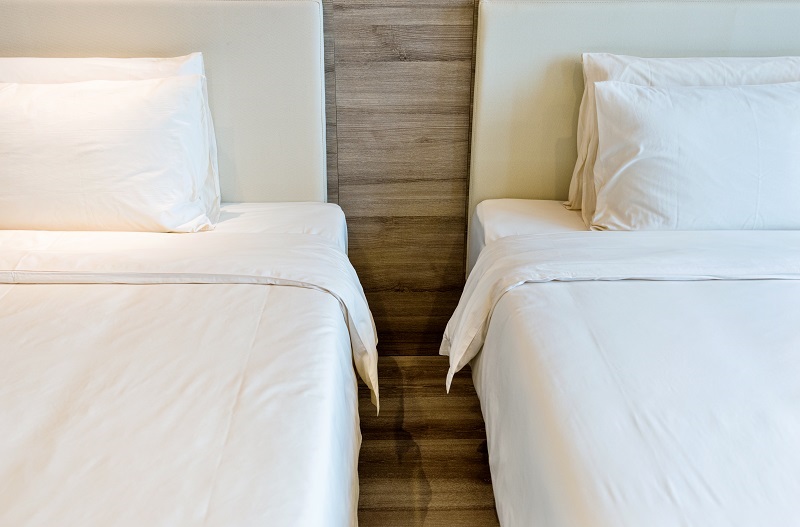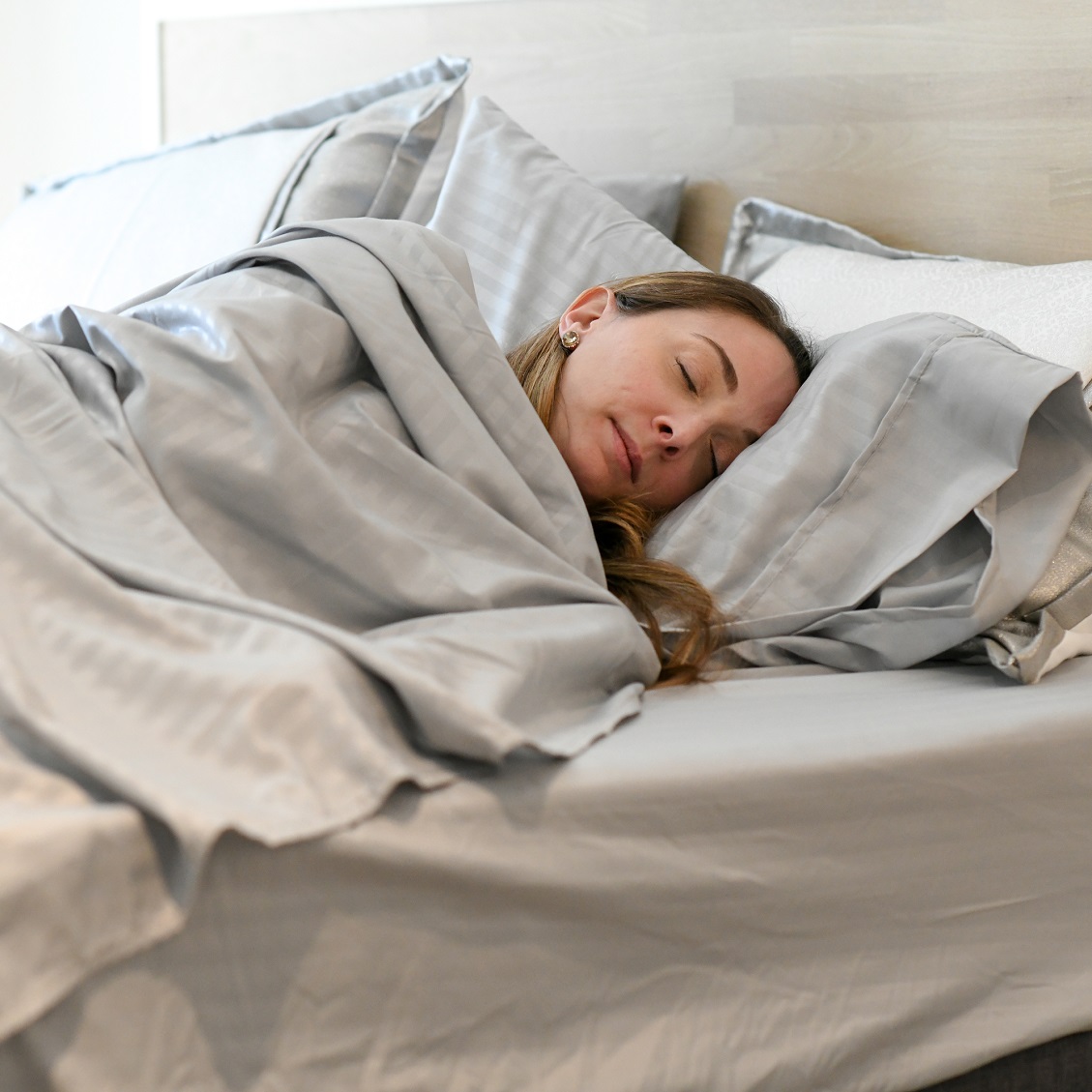How 'Sleep Divorce' Can Help Your Relationship & Overall Health

August 08, 2023
"Sleep divorce" may sound as serious as it does intimidating. But the concept—put simply, when a couple chooses to sleep either in separate beds or in separate rooms—is becoming increasingly popular as a way for couples to improve their sleep health.
"With the rise of technology and increasingly busy lifestyles, we're just not getting as good of sleep as we used to," says Rana Ali, M.D., sleep medicine specialist. "Many couples today are exploring different options for getting a good night's rest, including sleep divorce. By sleeping separately, each partner can take control of their own comfort level while still maintaining an intimate relationship with their significant other."
Benefits of Sleep Divorce
Dr. Ali says sleep divorce can benefit couples in a number of ways, including:
- Increased comfort: "When couples sleep in separate rooms, they're able to control the temperature and environment of their own sleeping area, which can lead to greater overall comfort while getting a good night's rest," Dr. Ali says.
- Less sleep disruption: If one partner snores or has different sleep patterns than the other, sleeping in separate beds or rooms can help reduce disturbances during sleep cycles. "Uninterrupted sleep is important because it allows our bodies to rest and recharge, giving us the energy and focus we need to tackle the day," Dr. Ali says. "Getting good-quality sleep can boost the immune system and lower risk of certain diseases."
- Improved mental health: Restful sleep is linked with better mental health outcomes, reduced stress and improved moods. "When a couple gets adequate amounts of uninterrupted restful sleep, it's easier for them to feel connected emotionally as well as physically," says Dr. Ali.
- Enhanced intimacy: Sleeping in separate beds does not have to adversely affect the intimacy between partners. "In fact, sleep divorce could make couples feel more intimate by allowing each person individual space and freedom while still supporting one another," says Dr. Ali. "But clear communication is essential to ensure that both parties understand the reasons and goals behind the decision to sleep separately and to maintain a strong emotional and physical connection."
Signs Sleep Divorce May Be Right for You
Is sleep divorce right for you? While the decision to sleep separately is an individual one, Dr. Ali provides seven reasons couples might consider it:
- One person snores loudly and disrupts the sleep of the other.
- The couple maintains very different bedtime and wake-up times.
- One person needs a quiet space for sleeping, while the other needs white noise.
- Each partner prefers a different room temperature for sleeping.
- Each partner has a different preference for mattress softness/firmness or type of blanket or sheets.
- One partner has different sleep rhythms that are disruptive when trying to get adequate rest in the same bed.
Before You Get Sleep Divorced
Keeping communication lines open and maintaining an emotional connection are key to making sleep divorce work. Often, couples who choose to sleep separately need to create a consistent routine to spend time together outside of the sleeping arrangement. This could include planning a regular date night, cooking together or sharing morning coffee, for example.
"Establish clear reasons for sleep divorce, discuss your individual sleep needs and preferences, and work together to come up with a plan that works for both parties," says Dr. Ali. "It is essential to communicate your intentions and ensure that your partner understands that the goal is to create a better sleep environment and not to distance each other emotionally."
How to Improve Your Sleep Without Sleep Divorce
Of course, sleep divorce isn’t for everyone. Many people don’t have an extra bedroom in their home, while others may not be comfortable with the idea.
Dr. Ali offers several tips for couples to improve their sleep health without opting for sleep divorce:
- If space in bed is the issue, consider getting a larger bed to provide each other with more personal space—especially if one partner moves around in their sleep.
- If each partner prefers a different temperature when sleeping, consider a temperature-control mattress topper.
- If snoring is keeping one partner awake at night, try out a white noise machine or app on your phone. Ear plugs can help, as well.
- Get exercise together before bedtime. Both partners will sleep better with regular exercise.
- Each partner can use their own blanket, so that each can choose their preferred warmth level and material.
Next Steps & Resources:
- Meet our source: Rana Ali, M.D.
- To make an appointment with a sleep specialist near you, call 800-822-8905 or visit our website.
The material provided through HealthU is intended to be used as general information only and should not replace the advice of your physician. Always consult your physician for individual care.






